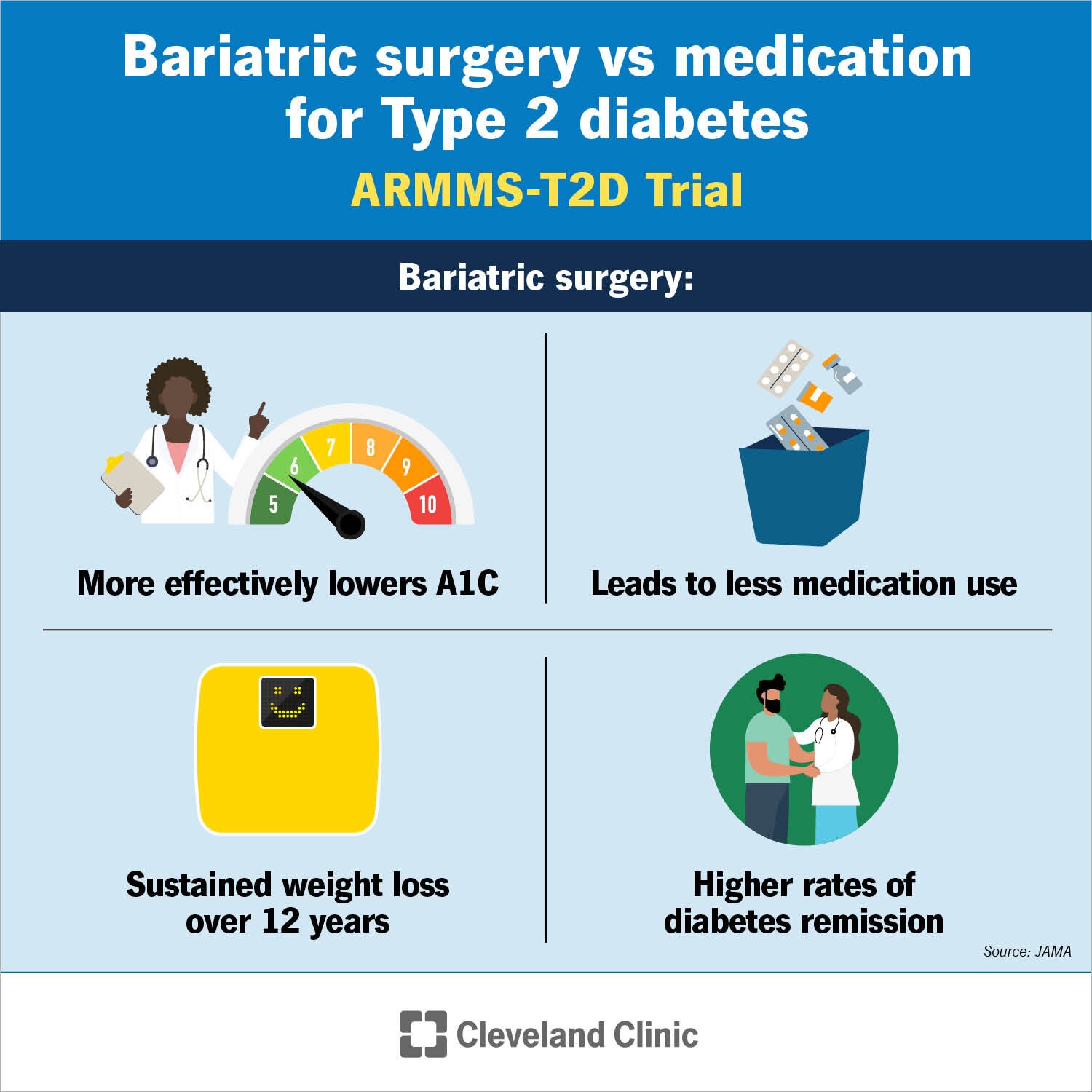Published on
Updated
Reading 3 min.
in collaboration with
Guillaume Pourcher (obesity surgeon)
Bariatric surgery allows type 2 diabetic patients to better control their blood sugar levels and take fewer medications in the long term. It also increases the proportion of remission. The opinion of Dr Guillaume Pourcher, obesity surgeon.
Compared to drug treatment, obesity surgery or bariatric surgery would offer better blood sugar control, less medication use and even more cases of remission. Currently limited to diabetics whose BMI is greater than 35, could this practice concern more patients tomorrow?
Fewer medications and better blood sugar levels for patients
As part of this study, scientists at the University of Pittsburgh compared the blood sugar levels and treatments of 262 patients. The latter were then randomly assigned to undergo bariatric surgery or non-surgical, but medicinal, treatment. They were followed for many years, between 7 and 12 years old.
Results: patients who underwent bariatric surgery had lower blood sugar levels and took fewer medications than those who continued drug treatment. Surgery patients were also more likely to achieve remission of their diabetes.

- By year 7, 18.2% of participants in the surgical group had achieved diabetes remission, compared to 6.2% in the medical/lifestyle group. By year 12, the difference was even more stark: No patients in the medical/lifestyle group were in remission, compared to 12.7% in the surgical group.
- Even in those who did not experience remission, bariatric surgery led to better blood sugar control with fewer diabetes medications than medical/lifestyle treatment.
- By year 12, surgical patients had experienced an average weight loss of 19.3%, compared to 10.8% for patients in the medical/lifestyle intervention group.
- The results were consistent across all weight class groups, showing benefits for patients with a body mass index (BMI) below and above 35 kg/m2 – the typical threshold for bariatric surgery treatment.
Author of an editorial that accompanies the study and former director of the Center for Weight and Eating Disorders at the Perelman School of Medicine at the University of Pennsylvania, Dr. Thomas A. Wadden believes that this study “provides the strongest evidence to date for the long-term effectiveness of bariatric surgery in improving control of type 2 diabetes.”.
Obesity surgery recommended by the HAS since 2022
In bariatric surgery, the patient undergoes surgery to reduce the size of their stomach or modify their digestive tract, in order to help them lose weight. There are different operating techniques and surgery has been recommended by the High Health Authority since 2022 for patients with unbalanced diabetes, whose BMI is greater than 30.
For Dr Guillaume Pourcher, obesity surgeon and head of the Obesity Center at the Institut Mutualiste Montsouris, in Paris, this study represents “the advent of metabolic surgery”. “This time, we demonstrate long-term effectiveness for diabetics from BMI 30″ he congratulates himself. “We realize that nothing compares to surgery and that drug treatments do not replace it”.
700,000 people potentially affected in France
For the doctor, in addition to results in favor of surgery, the study also demonstrates lower mortality for it. “Mortality was half as much in the “surgery” group as in the “drugs” group: 0.2% versus 0.1%.” notes the specialist. A difference which is however not statistically significant.
The only drawback that Guillaume Pourcher brings to this work lies in the technique used. “The only downside is the recourse essentially to bypass techniquewhich means that we see more numerous side effects in operated patients such as digestive disorders, fractures or anemia, due to the greater risk of deficiency..
It should also be noted that these trials were conducted before the widespread availability of GLP-1 agonist drugs for diabetes management and weight loss.
For the doctor, bariatric surgery remains “the best option for patient recovery, disease control and mortality”. An operation which could concern many diabetics, of whom there are around 700,000 in France.
